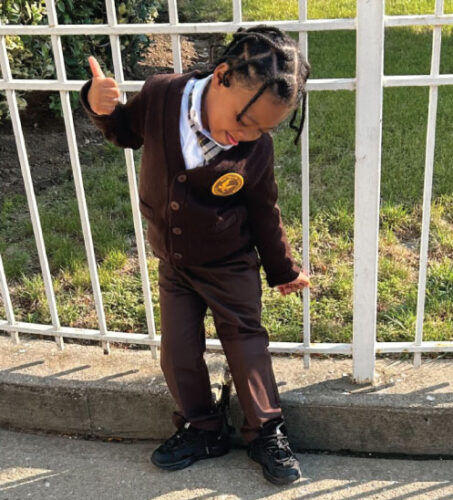A Mother’s Struggle to Help Her Son
By Johanna D., parent of 16-year-old Angenis
When my son, Angenis, was in elementary school, he struggled with his school work and was placed in a special education class so he could receive more specialized help. However, he still continued to struggle, and at age 12 he was a non-reader who did not even understand that letters made sounds. He could not read street signs or menus at restaurants. He could not do any of his homework. His inability to read had an emotional impact. Angenis was bullied by other students and did not want his friends to know that he could not read. He begged me not to send him to school because he was terrified of being called on to read.
When I realized my son’s school was unable or unwilling to help him, I secured a private evaluation from the Psychological Center at City College. The evaluation found that Angenis was smart with high-average IQ scores, but had dyslexia and could not read. The evaluation stated that Angenis needed a specialized program with daily tutoring in reading. I was very happy to finally understand why my son was struggling, and I finally felt hopeful that he could learn to read. On Angenis’ first day of sixth grade, I gave this evaluation to the principal so that she was aware of my son’s dyslexia and the recommendations for supporting him in reading. To my shock, the principal told me that her staff had never taught a student like Angenis and did not know how to help him.
I knew that something needed to change, so I contacted Advocates for Children of New York (AFC). With the help of an attorney at AFC, I pulled Angenis out of his middle school in the middle of sixth grade and enrolled him in the Sterling School, a specialized, private school. At the Sterling School, the teachers were trained in how to help students like Angenis learn to read and provided one-on-one reading instruction four days per week. In addition, AFC secured 300 hours of specialized tutoring for Angenis to help him catch up.
I saw significant changes in my son. Within two months at the Sterling School, Angenis was reading his first words. When my son aged out of the Sterling School, AFC helped me secure placement at Winston Prep, another school specializing in helping students with learning disabilities. At Winston Prep, he continues to receive one-on-one reading instruction every day. Angenis has made great progress and is finally reading. He is much more confident and happy now, and I have hope for his future.
On October 28, 2014, I had the opportunity to share Angenis’ and my story with the Education Committee of the New York City Council at an oversight hearing on instruction for students with disabilities. I don’t want any other child to have to go through what my child went through. The DOE needs to make sure that teachers are trained to help students with disabilities learn to read and that there is a way for parents to get help when their children are not reading. I believe in public education and want the DOE to work to make sure that every student in public school learns to read.

